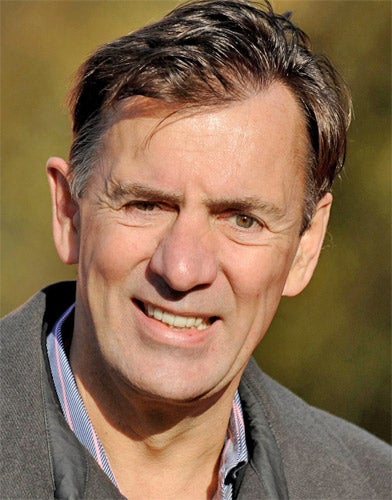The Week In Radio: Dragon turns his fire on our modern malaise

After the past week, we could probably all answer GCSE questions on employment and support allowance, child benefit and defence budgets. But as the spending review sank in, it was Radio 2 that ventured the most interesting question of the week. Can Money Make You Happy? was a title that was never going to need a spoiler alert. Presented by the thoughtful dragon Duncan Bannatyne, it was a probing and rather inspiring documentary.
Though it will come as no consolation to anyone who is having their benefit cut, the consensus was that money is not called "the root of all evil" for nothing. But given that Britain accounts for two thirds of all European credit card debt, it's a lesson we still need to learn. Among the more interesting interviewees were Rabbi Laura Janner-Klausner, who explained the Jewish idea of money being like fire.
"Fire is wonderful – it can light up your world, heat up your world, cook up your world – but it can also destroy your world. Money can make you happy, but it can also make you unhappy."
Though we always suspected being rich is not all it's cracked up to be, it was a surprise to find Max Clifford lining up against it. "Most of the rich and famous people I work with over the last 40 years, I would say very few are happy. Their perception of being rich with a big home and car inevitably brings them into company with people who have two big homes and three big cars, then there's someone with a yacht or a plane."
Bannatyne believes the current situation may be changing our psychological relationship with money but the problem, said the psychologist Dr Linda Papadopoulos, is that our identity increasingly resides in our possessions. "Emotions need to be projected on to things – the new phone or new shoes. We can always spend money on stuff but stuff has personality and gives a meaning to identity so that's why it has become more visceral."
Identity problems, of course, are nothing new. In something of a Saturday night coup, Radio 4 got Michael Sheen, who will play Hamlet at the Young Vic next year, to examine why the role, at 1,495 lines the longest Shakespeare wrote, holds such fascination. Playing the Dane was wonderful, with Hamlets past talking us through their techniques. Henry Irving, who put the ham in Hamlet, was notorious for inserting odd pauses and had "a hard caustic voice like a jet of carbolic acid". Kenneth Branagh had his Hamlet surrounded by mirrors, because "in a naff symbolic way, Hamlet is going through the play looking at himself, examining himself". John Simm warned of the moment all Hamlets dread. "You just say, 'To be...' and you hear the whole audience say, 'Oh here we go...'"
The most revealing contribution came from Jonathan Pryce, whose 1980 production, famously, was without a ghost. Hamlet's father was spoken by Hamlet himself, an idea Pryce got from The Exorcist. He explained that his Hamlet came shortly after death of his father, who had been attacked in his own grocery shop. "I felt I'd absolutely missed this opportunity to have this relationship with my father and I began to conjure him up in my head."
I tried hard to resist The Fry Chronicles on Radio 4, the latest instalment from a man who has taken the Socratic idea about a life unexamined to heart. But it was of course perfectly pitched, intelligent, amusing and endearing. This week it was Stephen Fry's celibate years, in which an all-consuming passion for Apple Macintosh stood in for sex. It is amazing to hear that Fry lies awake reflecting on his lack of achievement. Where that leaves the rest of us just doesn't bear thinking.
jane@janethynne.com
Join our commenting forum
Join thought-provoking conversations, follow other Independent readers and see their replies
Comments